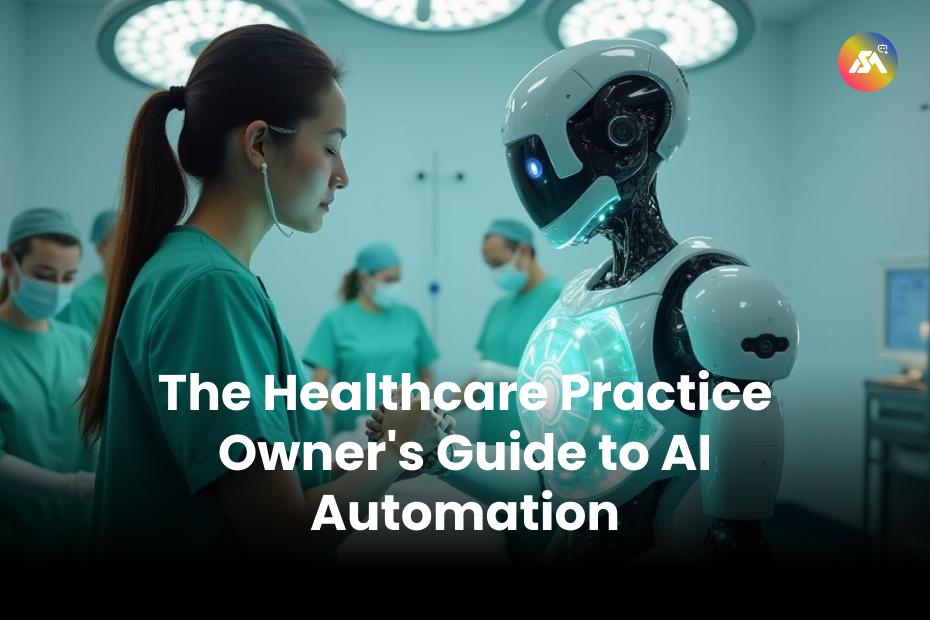
The Healthcare Admin Crisis: Why 70% of Doctors Are Burning Out
The shocking reality: Healthcare professionals spend 60% of their time on administrative tasks instead of patient care. This isn’t just inefficiency—it’s a crisis affecting patient outcomes and doctor satisfaction. That’s why healthcare automation and medical practice automation are becoming essential solutions for modern clinics.
With AI chatbots for healthcare handling routine patient inquiries and patient management automation streamlining workflows, practices like Dr. Sharma’s are finally finding relief from administrative burden while improving patient care quality.
The AI Revolution in Healthcare Administration
Healthcare automation isn’t just about technology—it’s about reclaiming your time to focus on what matters most: healing patients.
Market Reality: The global healthcare automation market is projected to reach $88.9 billion by 2028, with 72% of healthcare organizations reporting significant efficiency improvements.
5 Game-Changing Automation Systems Every Practice Needs
1. Intelligent Appointment Scheduling
AI assistants handle appointment booking, rescheduling, and cancellations across multiple channels while optimizing your calendar for maximum efficiency.
Impact: Reduces scheduling time by 80% and no-shows by 35% through automated reminders and confirmations.
2. Automated Patient Intake and Documentation
Digital forms that adapt based on patient responses, automatically populate medical records, and flag urgent concerns for immediate attention.
Time Savings: Pre-visit documentation completed 90% faster with higher accuracy rates.
3. AI-Powered Patient Communication
Chatbots handle routine inquiries about office hours, insurance acceptance, prescription refills, and test results while escalating complex cases to staff.
Patient Satisfaction: 24/7 availability increases patient satisfaction scores by 45%.
4. Automated Insurance Verification
AI systems verify patient insurance coverage, check benefits, and identify potential coverage issues before appointments.
Revenue Impact: Reduces claim denials by 60% and improves cash flow through faster reimbursements.
5. Smart Follow-Up Sequences
Automated post-visit care instructions, medication reminders, and follow-up appointment scheduling based on treatment protocols.
Real-World Success Stories
Dr. Kumar’s Cardiology Practice: Implemented AI scheduling and patient communication systems. Results:
- 70% reduction in front desk calls
- 40% increase in appointment bookings
- 50% improvement in patient satisfaction scores
Mumbai Multi-Specialty Clinic: Automated insurance verification and patient intake. Outcomes:
- 3 hours daily time savings per doctor
- 90% faster patient check-in process
- 25% increase in daily patient capacity
HIPAA-Compliant Automation That Protects Patient Data
Security First: All healthcare automation must meet strict HIPAA compliance standards. Key features include:
- End-to-end encryption for all patient communications
- Secure data storage with audit trails
- Role-based access controls
- Regular security assessments and updates
Cost-Benefit Analysis: ROI of Healthcare Automation
Initial Investment: ₹2-5 lakhs for comprehensive automation setup Monthly Savings: ₹1-3 lakhs in reduced administrative costs Payback Period: 2-4 months Annual ROI: 300-500%
Implementation Roadmap for Healthcare Practices
Phase 1: Foundation (Weeks 1-2)
- Implement AI chatbot for basic patient inquiries
- Set up automated appointment scheduling
- Configure patient reminder systems
Phase 2: Optimization (Weeks 3-6)
- Deploy insurance verification automation
- Implement digital intake forms
- Create automated follow-up sequences
Phase 3: Advanced Features (Weeks 7-12)
- Integrate with EHR systems
- Set up predictive analytics for patient care
- Implement automated billing processes
Overcoming Common Implementation Challenges
Staff Resistance: Provide comprehensive training and emphasize how automation reduces mundane tasks while improving patient care.
Patient Adoption: Gradually introduce automation features while maintaining human touchpoints for complex needs.
Technology Integration: Work with experienced automation providers who understand healthcare workflows and compliance requirements.
The Future of Healthcare Automation
Emerging trends shaping the industry:
- AI-powered diagnostic assistance for pattern recognition
- Predictive analytics for preventive care
- Voice-activated documentation for hands-free record keeping
- Telemedicine integration for remote patient monitoring
Taking Action: Your Healthcare Automation Journey
Ready to transform your practice? Follow these steps:
- Assessment: Evaluate current administrative workflows and pain points
- Prioritization: Start with high-impact, low-complexity automation
- Implementation: Work with HIPAA-compliant automation specialists
- Training: Ensure staff and patients understand new systems
- Optimization: Continuously refine processes based on feedback
The Bottom Line
Healthcare automation isn’t about replacing human care—it’s about enhancing it. By automating routine administrative tasks, you create more time for meaningful patient interactions and better health outcomes. The practices that embrace AI automation today will set the standard for tomorrow’s healthcare delivers